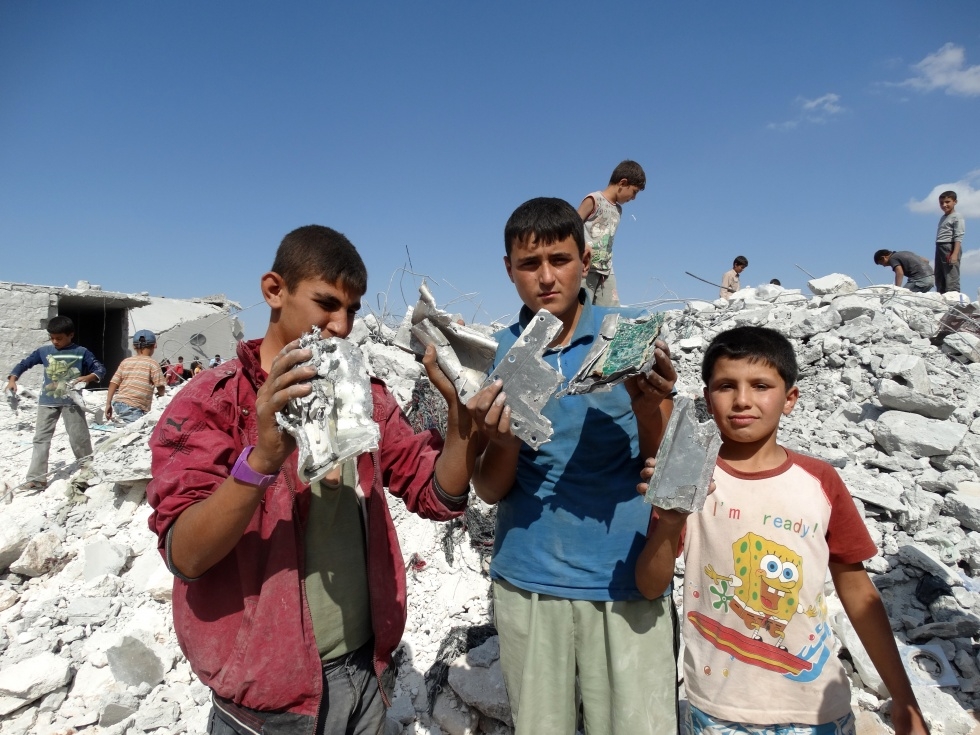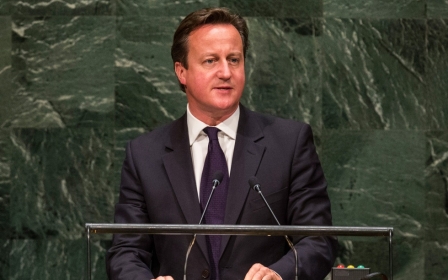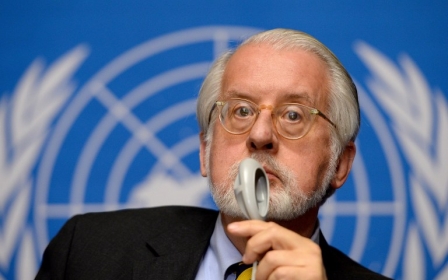Analysis: Syrian sentiments vary as coalition begins military campaign

As the US-led anti-terror coalition’s military campaign in Syria gets into full swing, dramatic changes are taking place on the ground and in the minds of ordinary Syrians, who are directly affected. As the Syrian battlefield is reshaped and remolded by US fire and steel, the final outcome is anyone’s guess. Will it ultimately backfire and end up stoking more anti-Western sentiment and support for extremism, or will it eradicate the imminent threat posed by the most noxious of terrorist groups to the region and the wider world?
That remains to be seen. What is evident now, is blanket condemnation across the board by ordinary Syrians. This is, of course, in contrast to their political leadership, which welcomed these strikes. Syrians are unified in their anger, but the reasons are very different. For the loyalists, it’s the humiliation and embarrassment at such a flagrant violation of the sovereignty of their country and the anemic response by the Syrian regime. The fact that the Syrian government was informed beforehand came as little consolation. They lament on social media that even tiny Bahrain is bombing them. “We have become everyone’s playground,” Ammar, a regime supporter from Aleppo, told Middle East Eye (MEE). “Once our nation was a big player in the Middle East, now even tiny nations can bomb us.”
For opposition supporters, their anger stems from the the targeting of the al-Nusra Front and other Islamist groups, which they view as key forces on the ground battling the regime and an integral constituent of the uprising. They are further infuriated by the fact that the Syrian army and its allied militias have been spared any such attacks, prompting opportunistic propagandists to label the strikes as “anti-Sunni” or even a new anti-Islamic crusade, even though the US went to great pains to include blatantly obvious Sunni regional powers like Saudi and the UAE.
The National Coalition - the umbrella opposition group in exile seen as friendly to the West - has cautiously welcomed the strikes, which risks alienating it even further from its grassroots inside Syria. Almost every major rebel group on the ground has condemned the coalition airstrikes, precisely for those reasons. What’s more telling is that even groups which have received US funding and arms - even the Hazm movement - has come out against them, for fear of backlash by other factions should they be seen as cronies of the US.
There is unanimity on the ground then, with all manner of rebels, from Islamists to Jihadists to moderates, all scrambling to distance themselves from the strikes. Even the most vehement enemies of the Islamic State (IS), which have been locked in a deadly war with the group, are unhappy and disillusioned. Abu Hammoud, a rebel commander in the influential Liwa’ al-Tawheed Brigades in Aleppo, told MEE: “They are imbalanced; if they were serious about tackling the causes of terrorism, they would bomb Assad too. He is the reason IS is here.”
In the opposing camp, both Iran and Hezbollah have come out against the coalition strikes, but that is likely because at the behest of Saudi Arabia they were not included. Strategically, their goals in Syria are served quite well by the strikes, as their arch existential enemies are degraded and weakened. The Syrian regime however, has no such qualms; it is quietly happy that the onus in Syria has now switched from regime change to a war on terror, something which it had always been striving to do.
So, in light of all this, we must ask, is it the reaction of the Syrian regime and the opposition that is so puzzling?
The simple answer is no.
Both think that these airstrikes are to their advantage, as wiping out IS would ultimately give them the upper-hand on the battlefield. For the regime, the jihadists have been its fiercest and most capable opponent, wresting large swathes of territory and inflicting painful and humiliating defeat.
Facing the moderate or local rebels after IS and other jihadist groups are eliminated would be easy by comparison. The National Coalition (NC) - a coalition of opposition groups founded in Qatar and based in Istanbul - feels the same, but for different reasons. In their view, the major hurdle to properly arming and funding a Free Syrian Army-style rebel force would be overcome after the jihadist threat is gone. With that sticking point out of the way, plus the pledge to arm and train thousands of rebels by the US in Saudi Arabia, they feel confident that it is only a matter of time before they gain the upper-hand militarily. In their calculation, it is a drawn-out war; the jihadists go first, then it will be Assad’s turn to be taken out, possibly by coalition strikes too. Time is on their side - or so they feel.
But there is a third, more rational voice among this acrimonious cacophony, albeit a quiet and small voice: that which expresses that the Syrian conflict can only be solved through a negotiated, political settlement between the regime and secular or moderate elements of the opposition. One of the key hurdles to achieving this has always been the presence of extremist and jihadists, who have effectively hijacked the opposition’s ability to make decisions of war and peace, and have actively sought to sabotage any such deals, including local ceasefires on the ground, which have spared the hapless inhabitants of those areas from unspeakable suffering and misery.
The extremist jihadist ideology mandates that a hard-line theocracy be set up by force on the ruins of a defeated Syrian state, ethnically cleansed of all non-Muslims and non-Sunnis. It goes without saying that such ideologies are rejected by any rational human being, and as such, removing the jihadists as a major player in the Syrian conflict is a first step on the road to any eventual political settlement in Syria.
With all of these conflicting views, arguments and counter arguments, the picture in Syria is as murky and muddled as ever. One thing is for certain though: a new and far more dangerous phase has just begun in this war-torn nation, and its people are just unwilling victims.
No one seems to have bothered to seek the Syrian people’s opinion, or gain their consent before plunging their country - yet again - into more turmoil and bloody mayhem.
- Edward Dark is MEE's Aleppo-based columnist and writes under a pseudonym
The views expressed in this article belong to the author and do not necessarily reflect the editorial policy of Middle East Eye.
New MEE newsletter: Jerusalem Dispatch
Sign up to get the latest insights and analysis on Israel-Palestine, alongside Turkey Unpacked and other MEE newsletters
Middle East Eye delivers independent and unrivalled coverage and analysis of the Middle East, North Africa and beyond. To learn more about republishing this content and the associated fees, please fill out this form. More about MEE can be found here.




